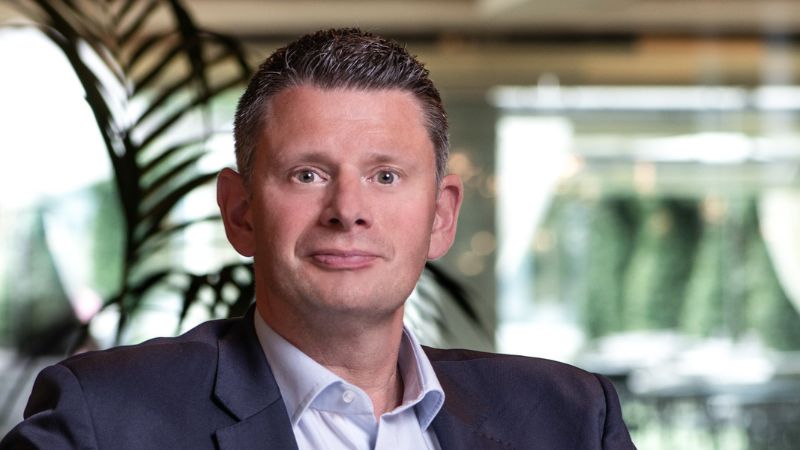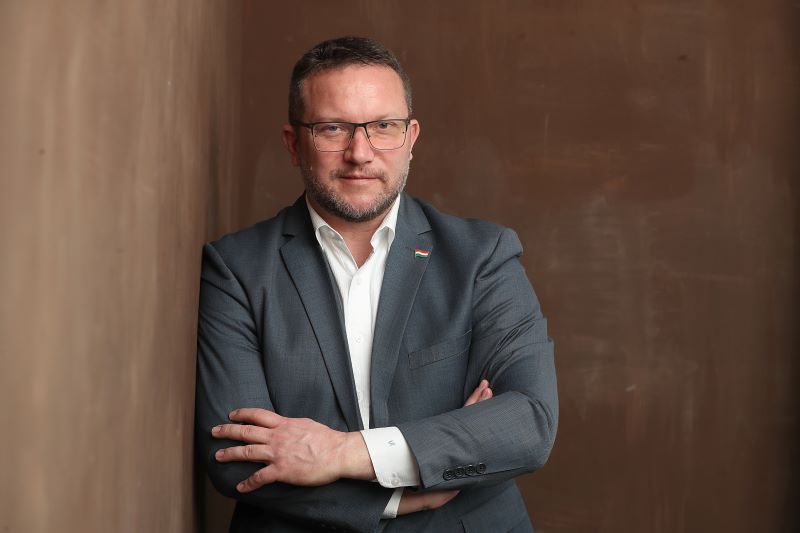Universal newborn screening can increase the chances of patients
Sebastian Stachowiak, Head of Europe & GCC at Global Blood Therapeutics (GBT)
What is Sickle Cell Disease?
Sickle cell disease (SCD) is a rare, inherited blood disorder that affects more than 52,000 people in Europe. It is one of the most common rare diseases in Europe.
In people with SCD, red blood cells lose their normal disc shape. They become sickle-shaped and rigid, are destroyed faster than they can be replaced (haemolytic anaemia) and get stuck in small blood vessels, blocking the flow of blood and oxygen to the body. Most people affected by SCD have to live with significant lifelong morbidities.
The condition, which carries a life expectancy of approximately 30 years below the general population, predominantly affects people of African, Mediterranean, and South Asian descent and socio-economically vulnerable groups who tend to have difficulties in accessing healthcare. Unfortunately, these groups have been further disadvantaged by the Covid-19 pandemic.

“Despite its prevalence in Europe, many non-specialist healthcare professionals, including in emergency services, know little about SCD and this can translate into a lower quality of care for patients”
What are the main challenges SCD patients are facing?
People living with SCD across Europe face many difficulties. The main ones are the stigma and the misunderstanding of the disease linked to episodic pain that requires recurrent use of opioid-based analgesics, and the fatigue SCD causes. Many patients find themselves waiting a long time before obtaining a diagnosis and experience difficulties in accessing adequate care. This is a huge issue because early diagnosis and treatment are vital for patients to experience a higher quality of life and can stop the damages caused by the disease. It is also crucial for providing preventive treatment for some of the more devastating complications of SCD.
Despite its prevalence in Europe, many non-specialist healthcare professionals, including in emergency services, know little about SCD and this can translate into a lower quality of care for patients.
Why is introducing universal newborn screening so important?
As early detection goes, screening programmes are the first and most important step. In the EU, they are determined at national level, which results in wide variations between countries. This means that people in Europe don't have the same chances of getting early diagnosis and treatment, with these depending on the country they live in.
Targeted screening is not enough. It can miss cases and lead to discrimination of at-risk groups. Only universal newborn screening, as introduced in Belgium, the Netherlands, Spain and the UK, can ensure improved outcomes for all patients, including for those already experiencing difficulties in accessing care.
This is why at GBT, we strongly believe that universal newborn screening is the answer. Reducing the length of time it takes for a patient to be diagnosed would allow for an early intervention, contribute to reducing childhood mortality and radically improve patients’ quality of life. We call for universal newborn screening and are ready to work constructively with institutional partners at European and national level to make this a reality.

Introducing universal screening for rare diseases in Europe
MEP István Ujhelyi, a member of the Committee on the Environment, Public Health and Food Safety, calls for the need to tackle health inequalities in the EU and especially in relation to rare diseases
In the EU, over 30 million people live with a debilitating and chronic rare disease, such as sickle cell disease (SCD) and face multiple and complex challenges. Many of these patients experience significant health inequalities and often have to face the stigma that comes with their condition. In addition to this, the COVID-19 pandemic has exacerbated inequalities, with 84% of people living with a rare disease reporting a direct experience of disruption of care.
Among the rare disease community in general, and for people living with SCD, many face concrete challenges linked to health inequalities, data fragmentation, and lack of multidisciplinary care. This, in my opinion, represents a case in point for EU and national policymakers to focus on where policy change can help address some of the unmet needs of a community of patients and European citizens.
The EU, and the European Parliament especially, as it represents all EU citizens, have an important role to play in ensuring better and equal access to all patients in need of treatments. The revisions of the Orphan Medicinal Products (OMP) Regulation and the Pharmaceutical Strategy, for example, intend to provide incentives for the development of medicines for rare diseases and so to improve accessibility and availability of medicines.
“There is a need for more harmonisation so that people living in different Member States have the same access to early diagnosis and to maximise the benefits from treatments leading to better patient outcomes”
However, diagnosis also needs to be bettered, so that patients can access relevant treatments as soon as possible. In 2021, it could still take on average four years for people living with a rare disease to receive a diagnosis. This is way too long and no question, we need to change that.
Universal newborn screening is one of the concrete measures that can be implemented in the framework of the revision of the OMP and a step that Member States can take to concretely improve the quality of life of people living with a rare disease.
Member States’ newborn screening policies are currently heterogenous, with no standardised approach defining which group should be screened, which screening methodology should be used or what should take place after the screening itself. There is a need for more harmonisation so that people living in different Member States have the same access to early diagnosis and to maximise the benefits from treatments leading to better patient outcomes. That's the reason why the European Parliament calls for the Member States to carry out stress tests in their healthcare systems, in order to measure differences.
We need to work together so that all citizens have the same chances in accessing available and affordable medicines in the EU. I am committed to raising this important issue in the political discourse. Although rare diseases sound like they are a problem for just a few, the lives of many Europeans are affected and should be improved, and as a politician this is my task.
This content was commissioned by Global Blood Therapeutics (GBT) and produced by Dods Impact
Sign up to The Parliament's weekly newsletter
Every Friday our editorial team goes behind the headlines to offer insight and analysis on the key stories driving the EU agenda. Subscribe for free here.